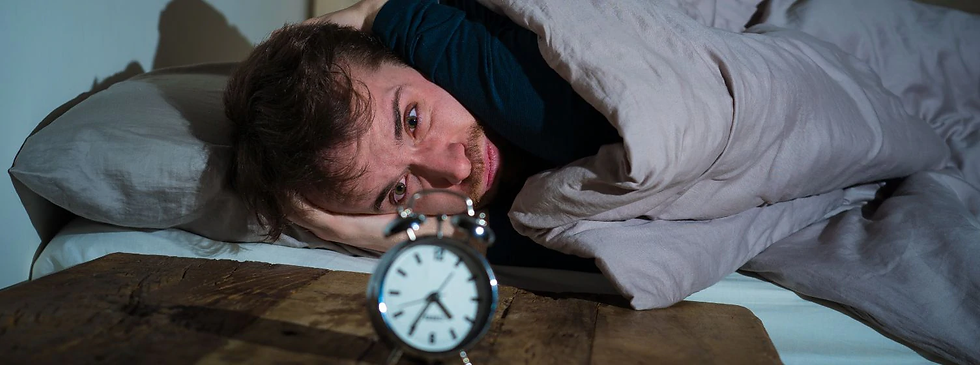Sleeping on it
- pedrorodrigues

- Jun 12, 2023
- 3 min read
Sleeping on it is an expression commonly used by people when referring to thinking thoughtfully about a particular subject. But interestingly these days it seems that the idea of thinking thoughtfully about a subject seems to mean that it will take time. And many people seem not to be complacent and understanding of that idea. They say it's the needs of the current times. And indeed, this post modernity and even more so with the advancement of technology seems to be increasingly demanding with an immediate response. However, many issues need to be pondered. And research itself shows that being able to sleep on it helps in making a better decision on the issue at hand. Don't believe it? Check it out here!
But there is one issue that also needs to be slept on, not least because there is little work done on the subject, and the number of people affected is significant. I'm referring to sleep in adult autistic people.
If on the one hand it is recognised that sleep disorders are a variable present in the life of autistic children. And the pharmacological and behavioural intervention has been developing answers for their remediation. The same is not so true for adult autistic people, mainly at the level of behavioural intervention. And the multiple studies which have been carried out with the adult autistic population show that sleep problems are a significant part of their difficulties. And with a negative implication in other equally important areas of the person's life, and in the case of adult autistic people, these areas are already compromised. I am referring to issues related to anxiety, emotional regulation, gastrointestinal issues, attentional focus, among others. In other words, if you think of yourself the morning after a bad night's sleep, you can think of how hard that day was for you. Now imagine that that sleepless night is multiplied over days, weeks, months and years!
As such, it is critical that adult autistic people, whether those diagnosed at this stage of their life, or those diagnosed in the past, it is critical to monitor their sleep patterns and know the difficulties that are present. Even if we think of an adult autistic person and who was diagnosed as a child or adolescent and has already received behavioural and pharmacological intervention for a sleep disorder. This fact does not mean that the complaints have been totally solved. There are other factors involved and that help to understand the maintenance of the difficulty in this sphere throughout life. And it's not by chance that many adults with sleep difficulties end up not seeking help. And they justify this by saying that they received help at a certain moment and this didn't completely resolve the situation. This gives them the idea that there's no point in seeking specialised help, because there's nothing that can be done. This is not true.
That is precisely why Autismo n'Adulto and Dra. Mafalda Leitão (see here) will bring some news at the beginning of next school year. But until then we would like to leave you with some important ideas of what you can do until then to contribute to better sleep hygiene: i) Create a sleep diary. Very often we notice that people cannot keep a reliable record of how they sleep. Whether it's because they think they've always slept badly and as such continue to do so. And so, they don't seem to be aware of what could be related to the fact that they sleep worse or better. It is important to think that action will focus on changing behaviour and it is therefore important to be aware of them so that they can be changed. Thus, through the creation of this sleep diary it will be possible to understand if there are any rituals that interfere with lying down and sleeping; ii) Establish a bedtime routine. It is true that many of us have heard this all our lives. But there are still many who do not validate the importance of this measure. For example, sometimes we hear people say that it doesn't work that well, even because they have already had a regular schedule and this has not produced any positive effect; iii) Make the bed and the bedroom the most comfortable space possible. This issue is so much more important when we are talking about autistic people and know what their sensory sensitivities are, whether they are hyper or hyposensitive; iv) Take care of the food. Whether in the type of nutrients, or in the quantities and times of meals, it is fundamental to reflect about the feeding and the introduction of a diet to meet a healthier behaviour; v) It will be fundamental to consult the physician to get advice about the possibility of introducing a pharmacological intervention adequate to the patient's needs.



Comments